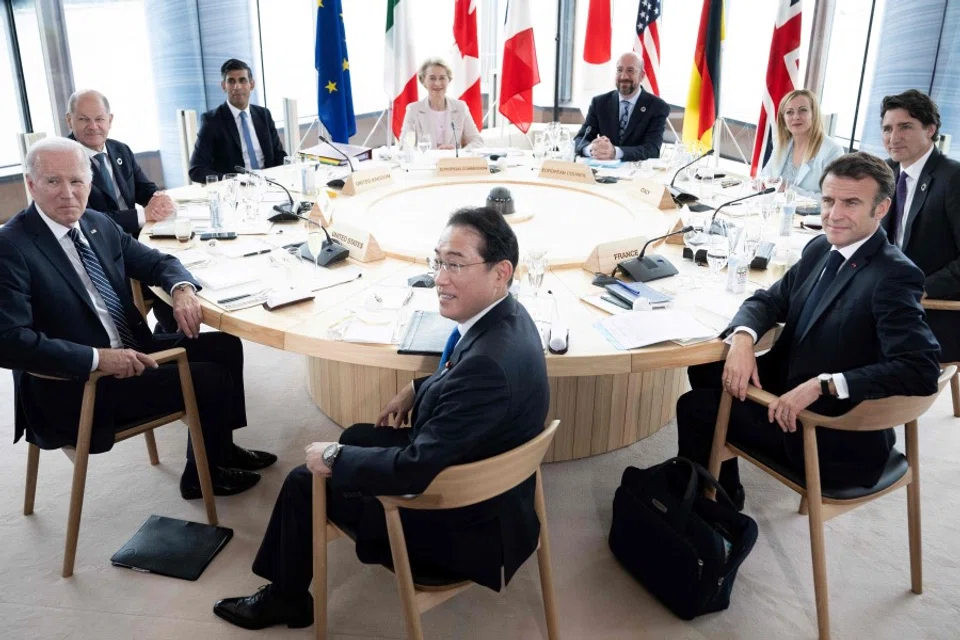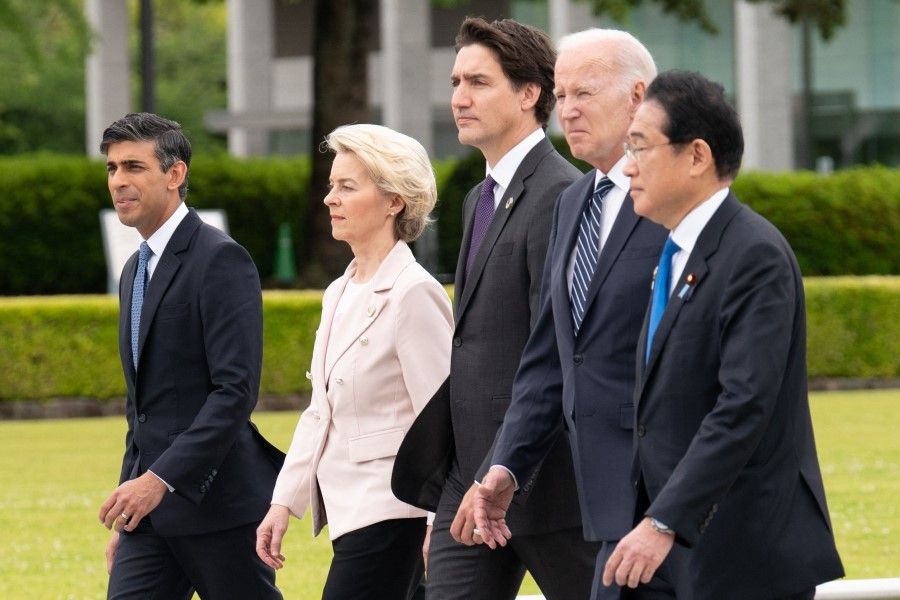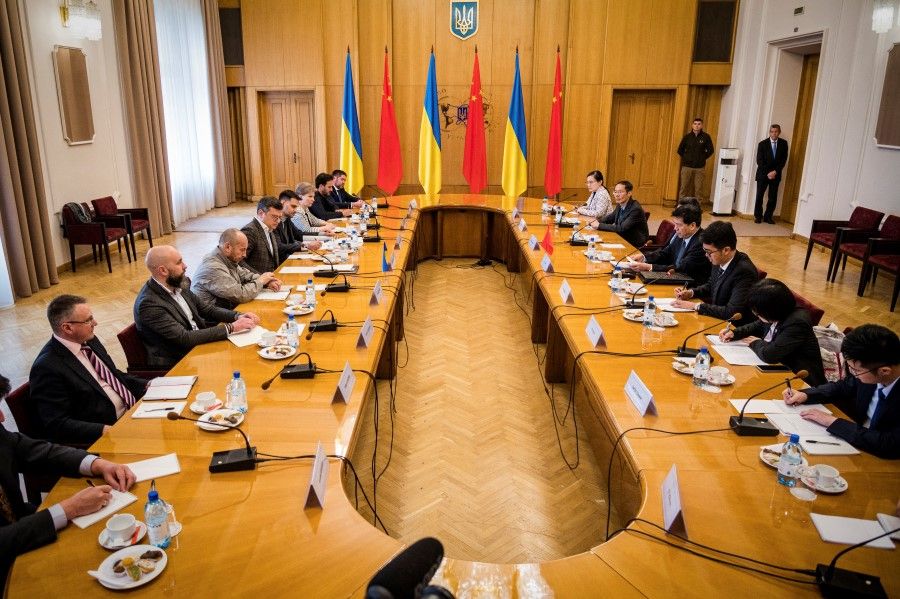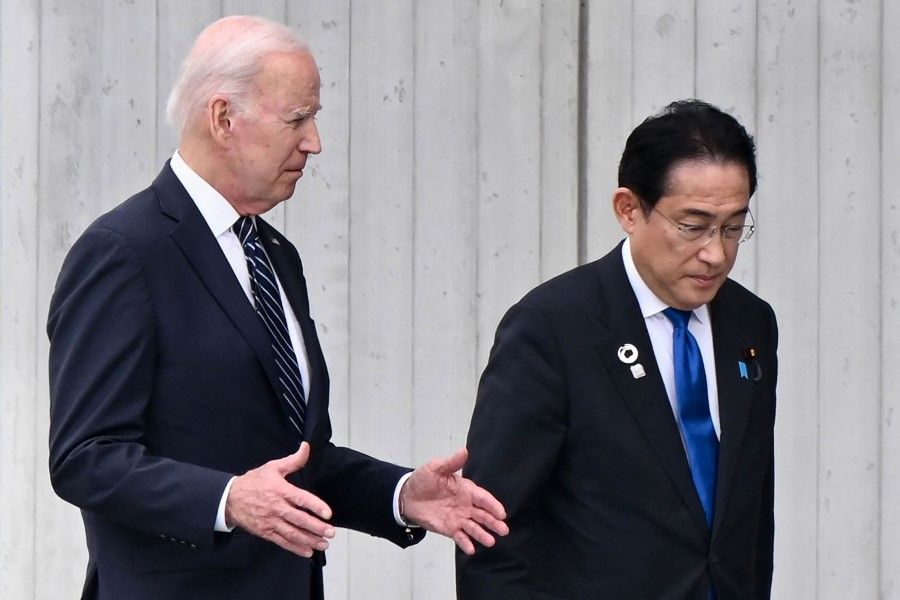Ongoing tug of war as G7 meet and China looks on

This year's G7 summit begins on 19 May in Hiroshima, the hometown of Japanese Prime Minister Fumio Kishida.
Kishida, who was Japan's foreign minister for many years, has increasingly shown his penchant for international diplomacy. In just the past two months, Kishida visited India, Egypt, Ghana, Kenya, Mozambique, Singapore and South Korea.
His tour to lay the groundwork for the G7 summit included visits to Africa and developed Asian economies, reflecting his efforts to understand the views of various countries, earnestly engage with global south nations, and achieve more results in the G7 diplomatic discussions.
Forming a common approach towards China
According to Japanese and US media this week, the G7's efforts to prevent nuclear proliferation are anticipated to be highlighted on the first day of the meeting. The leaders' declaration and its annex - set to be released on the final day of the summit - is expected to explicitly state the G7's opposition to "economic coercion", specifically against China.
... this may also mean that not all G7 members will go on record to directly criticise China, since there is no consensus among G7 members on this issue.

Kishida has reportedly asked countries to centre around the G7 and show a clear stance on issues concerning China. At a press conference on 16 May, White House National Security Council spokesperson John Kirby said that the G7 will stand in solidarity with Ukraine and further isolate Russia, and it will also "demonstrate that we share a common approach to the challenges posed by the PRC [People's Republic of China], an approach that is grounded in common values".
According to the latest information from the White House, US President Joe Biden and Kishida will discuss China's "coercive behaviour" and maintaining peace and stability in the Taiwan Strait.
However, this may also mean that not all G7 members will go on record to directly criticise China, since there is no consensus among G7 members on this issue. Furthermore, Europe has recently eased its confrontational stance towards China. Nonetheless, while China is not a G7 member and was not invited to attend the summit, it is certainly one of the focal points of the G7 - like an elephant that is not in the room.
In China's absence, Kishida has invited eight guest nations, including South Korea, Australia, India, Brazil, Comoros, the Cook Islands, and ASEAN members Vietnam and Indonesia.
Ukraine crisis also at forefront of discussions
Another focus of the G7 summit is the war in Ukraine. On 17 May, the office of Ukrainian President Volodymyr Zelenskyy confirmed his participation, and his in-person attendance was confirmed on 19 May by Oleksii Danilov, the head of Ukraine's National Security and Defense Council, who announced Zelenskyy's trip on national television.

From 13 to 15 May ahead of the G7 summit, Zelenskyy was warmly received in France, Italy, the UK and Germany, whose leaders also committed to providing more military support. Soon after, on 16 May, China's special envoy for Eurasian affairs Li Hui visited Ukraine to initiate China's mediation efforts in the Ukraine crisis.
All this intensive action highlights the current drastic changes in the global geopolitical situation, with the international community caught in an era of cooperation and division.
Indeed, China has not been idle as Kishida and Zelenskyy make their rounds. In the past ten days, three senior Chinese diplomats - Vice-Premier Han Zheng, Communist Party Politburo member Wang Yi, and State Councilor and Foreign Minister Qin Gang - have made respective visits to Europe.
Along with Li Hui's trip, Taiwanese media is describing the visits as China's "Four Gentlemen" (四公子) "removing stakes" in Europe - the US is staking out its territories globally to counter China, while China is "removing the US's stakes" in an attempt to stabilise relations with Europe and prevent it from tilting completely towards the US.

All this intensive action highlights the current drastic changes in the global geopolitical situation, with the international community caught in an era of cooperation and division. And the situation essentially boils down to the China-US rivalry, with each side striving to expand their own camps. But unlike China, the US has the assistance of other countries such as Japan.
However, the situation in the US itself has not made it any easier for Japan and pro-US countries in Europe.
What developing countries want from US and China
Biden's in-person participation in Hiroshima is probably a relief for Kishida, as it would not only bolster his position, but also allow Biden to personally stabilise the G7. However, the looming crisis of a US debt default and the uncertainty of US domestic politics have always made its allies feel uneasy.
Japan is well aware of the US's declining credibility. The Economist reported this week that Japanese officials and diplomats privately assessed that the West is losing to China when it comes to outreach to the global south. Furthermore, the West is failing to convince many poorer countries of the benefits of the current US-led order.
The Japanese officials have also heard many countries complain about the tumult in US domestic politics and its trade protection policies. They are also concerned that ruling elites in many developing countries are starting to prefer dealing with China, which "offers more stability, more roads and bridges, and fewer lectures". The article added that in Japan's estimation, the US's preaching about democracy has been especially ineffective.
They realise that in the China-US competition, the US needs to offer more practical benefits to other countries as compared with China in order to exclude or isolate it.

In this context, Bloomberg quoted insiders as saying that "the core of the reinvigorated G-7 effort is somewhat of a tilt away from a primarily values-driven approach to one based on more tangible offerings in areas such as trade and security".
Brian Nichols, US assistant secretary of state for Western Hemisphere affairs, also said that Washington needs to offer countries "a clear perspective and vision on what they can do to have successful economies", while making clear "that some of the promises that countries like China make, they're not delivering."
This may be a tactical adjustment that the US and its allies are preparing for, following objective and calm evaluation. They realise that in the China-US competition, the US needs to offer more practical benefits to other countries as compared with China in order to exclude or isolate it. However, China can also offer some favourable conditions, such as its enormous market, which is difficult to ignore.
For developing countries, this may mean that their concerns will be taken more seriously by major powers. However, there will be growing pressure for smaller countries to choose sides - some countries may sway according to their interests or even play hard to get. In the medium to long term, the China-US competition will probably continue for some time. The current actions of various countries centred around the G7 may only be a prelude or snapshot of what is to come.
This article was first published in Lianhe Zaobao as "围绕G7广岛峰会的内外角力".
